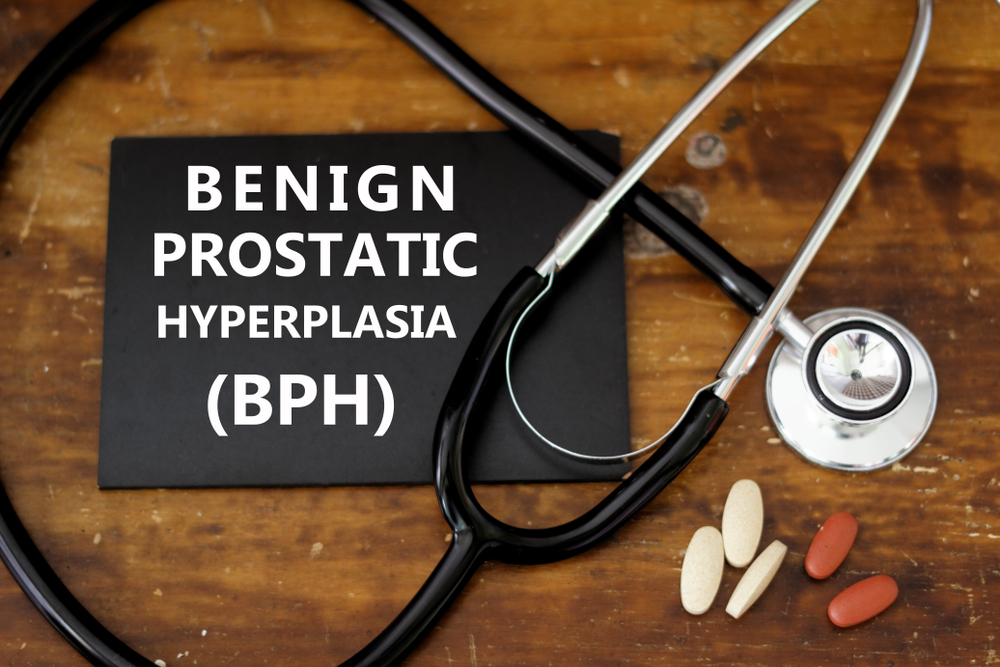What is Enlarged Prostate (Benign Prostate Hyperplasia?
An enlarged prostate gland, also known as benign prostate hyperplasia (BPH), is a common condition as men get older. You can do a lot to take care of yourself and give your body what it needs. Still, as you get older, your body changes in ways you can’t always control. For most men, one of those changes is that the prostate gland gets bigger.
Your prostate surrounds part of your urethra, the tube that carries urine and semen out of your penis. When you have BPH, your prostate is larger than usual, which squeezes the urethra. This can cause your pee stream to be weak, waking you up a lot at night to go to the bathroom, and it could also lead to other bothersome urinary symptoms.
BPH is not prostate cancer and does not make you more likely to get it. It is a common condition, especially in older men, and there are a lot of treatments for it – from lifestyle changes to medication to surgery. Your doctor can help you choose the best care based on your age, health, and how the condition affects you.

The enlargement of the prostate can lead to blockage of the urethra.
What are the causes and symptoms of BPH?
Most men have continued prostate growth throughout their lives. In many men, this continued growth enlarges the prostate enough to cause urinary symptoms or to significantly block the urine flow. It is not entirely clear what causes the prostate to enlarge. However, it might be due to changes in the balance of sex hormones as men grow older.
As the prostate gets larger, it starts to pinch the urethra. This causes symptoms that affect your urine flow, such as:
- Dribbling when you finish
- Hesitancy or difficulty starting to urinate
- A weak urinary stream, or you pee in stops and starts
When your urethra is squeezed, it also means your bladder has to work harder to push urine out. Overtime, the bladder muscles get weak, which makes it harder for your bladder to empty. This can lead to:
- Feeling like you still have to pee even after you just went
- Frequent urination — eight or more times a day
- Urinary incontinence (when you have no control over your pee)
- A sudden urgent need to pee
- Increased frequency of urination at night (nocturia)
A larger prostate doesn’t mean you will have more or worse symptoms. It is different for every man.
Although BPH does not lead to prostate cancer, but it may potentially cause some serious problems. For example, BPH may lead to kidney damage or cause a problem where you can’t pee at all.
It may also cause:
- Bladder damage
- Bladder stones
- Urinary tract infections
- Blood in your urine
Treatments for BPH
There is no one-size-fits-all approach when you have an enlarged prostate as each person reacts in his own way to the symptoms of BPH.
You can discuss about your symptoms with your doctor, and together you can decide on the best approach for your condition. Your options may include:
1. Watchful waiting and lifestyle changes
If your symptoms do not bother you much and you have not gotten any complications, you may choose to just have you and your doctor keeping a regular eye on things.
This means seeing your doctor once a year or sooner if your symptoms change.
Some things to watch include:
- Needing to pee a lot
- The sensation that your bladder is full, even after you have just gone to pee
- An urgent need to pee out of the blue
- A weak stream or dribbling at the end of the urine
- Trouble starting to pee
- Having to stop and start peeing several times
- Urine leakage
If you choose to monitor or observe, there are a couple of things you can do to ease things:
- Make simple changes in your habits – drink fewer liquids before bedtime, drink less caffeine and alcohol generally
- Avoid some over-the-counter medications
2. Medications
Medications may give you relief. Some reasons to consider going on medications for an enlarged prostate include:
- You have moderate symptoms that are not getting better or might be getting worse
- You have tried making lifestyle changes, such as drinking fewer liquids, with no result.
- You are at risk for complications related to BPH, such as not being able to empty your bladder
3. Surgery
Sometimes BPH doesn’t respond enough to lifestyle changes or medications. If that is the case for you, there are both minimally invasive procedures and surgical options available.
Your doctor may suggest surgery when you cannot pee at all or have:
- Kidney damage
- Lots of urinary tract infections or bleeding
- Stones in the bladder or urinary retention
With the minimally invasive procedures, doctors make much smaller cuts or are able to work with probes they insert through your penis. These types of treatments often mean faster recoveries and less pain and scarring.
Open surgery is the other option. You should speak with your doctor about what is best for your case.
At Surgi-TEN Specialists, we have several treatment programs for benign prostate hyperplasia (BPH). One of our treatments is by using advance technologies. If you suspect you have this condition, make an appointment with our experienced urologists for a thorough health check and to find out more on the treatment program that best suits you.

